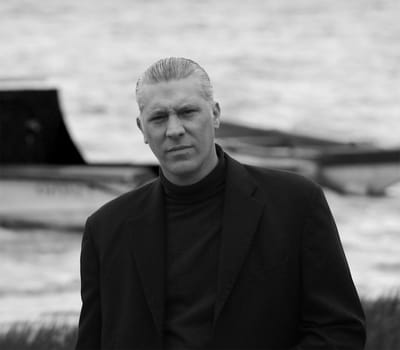Addiction Counselling
Online
Begin to Heal from the Suffering of Addiction, Right Now
BOOK YOUR FIRST SESSION powen66058@gmail.com
FREEDOM FROM ADDICTION
COUNSELLING teaches and assists people in how to approach real, lasting change. Create the changes you want and learn to navigate the difficult changes you don't always get to choose
There is help for addiction, living with mental illness, finding and maintaining relationships, dealing with grief, improving self-esteem, reducing the impact of stress, and even enjoying the adventure of being human. Counselling provides a Safe Space to experience personal growth as well as dealing practically with addiction, relationship, family, marital and career issues
BREAKING ADDICTION ALLOWS RADICAL TRANSFORMATIONS
There is help for addiction, living with mental illness, finding and maintaining relationships, dealing with grief, improving self-esteem, reducing the impact of stress, and even enjoying the adventure of being human. Counselling provides a Safe Space to experience personal growth as well as dealing practically with addiction, relationship, family, marital and career issues
BREAKING ADDICTION ALLOWS RADICAL TRANSFORMATIONS
- Feeling Good Enough
- Becoming "comfortable in your own skin"
- Transforming loneliness and isolation
- Mastering discomfort and distress
- Gaining self insight
- Healing and coping with chronic mental injuries ("illnesses")
- Managing emotional difficulties
- Creating healthier functional behavior patterns
- Viewing Life from an entirely new perspective


Peter-John Owen - ADDICTIONS Counsellor
Helping people recover from addiction for three decades
Peter-John Owen has helped thousands of people to recover from addiction, discover origins of dysfunctional patterns and finally become an authentic, integrated Self. It has been his life's work. Through in-person and online Counselling, he informs, educates, guides and supports people caught in the relentless trap of addiction. Through helping them to heal and grow on their own unique journey of Becoming who they are meant to be.
Peter-John Owen began volunteering to help people with addictions in 1994 and later worked in hospitals and institutions in the Western Cape, South Africa. He later continued his training and worked at a dual-diagnosis psychiatric hospital as the facility's lead Addiction Counsellor until beginning private practice as a lay counsellor specialising in Addiction Treatment in 2019.
He has clients internationally including Johannesburg, Cape Town, New York, Berlin, London, The Phillipines and Madrid. Mr Owen conducts individual, group and family counselling. He employs a complimentary framework of Existential, ACT (Acceptance and Commitment Therapy) and diverse addiction treatments. In addition, he draws upon cognitive principals as well as mindfulness, meditation and elements of DBT, CBT and Attachment Theory and the 12-Steps where applicable. Mr Owen is comfortable with both Eastern and Western philosophies.
"I love my work with people seeking change. After 25 years’ experience, I have come to see that we, as human beings, have an innate ability to heal, change our behavior and reframe emotional experiences when supported in an accepting environment." Peter-John Owen
Peter-John Owen has helped thousands of people to recover from addiction, discover origins of dysfunctional patterns and finally become an authentic, integrated Self. It has been his life's work. Through in-person and online Counselling, he informs, educates, guides and supports people caught in the relentless trap of addiction. Through helping them to heal and grow on their own unique journey of Becoming who they are meant to be.
Peter-John Owen began volunteering to help people with addictions in 1994 and later worked in hospitals and institutions in the Western Cape, South Africa. He later continued his training and worked at a dual-diagnosis psychiatric hospital as the facility's lead Addiction Counsellor until beginning private practice as a lay counsellor specialising in Addiction Treatment in 2019.
He has clients internationally including Johannesburg, Cape Town, New York, Berlin, London, The Phillipines and Madrid. Mr Owen conducts individual, group and family counselling. He employs a complimentary framework of Existential, ACT (Acceptance and Commitment Therapy) and diverse addiction treatments. In addition, he draws upon cognitive principals as well as mindfulness, meditation and elements of DBT, CBT and Attachment Theory and the 12-Steps where applicable. Mr Owen is comfortable with both Eastern and Western philosophies.
"I love my work with people seeking change. After 25 years’ experience, I have come to see that we, as human beings, have an innate ability to heal, change our behavior and reframe emotional experiences when supported in an accepting environment." Peter-John Owen



F.A.Q
How Does Remote Counselling Work?
Remote Counselling is exactly the same as normal counselling. The difference is you don't have to come into an office for your sessions.
You send us an email or WhatsApp text to begin the process and we will provide you all the details and book your first 60-minute session. We utilise Zoom with almost all our clients. You don't need to pay for it, simply download the app and we will email the invite when it's time for your session. Click on the invite link and you're ready. Payments are simply sent to the bank and we will provide the details.
You send us an email or WhatsApp text to begin the process and we will provide you all the details and book your first 60-minute session. We utilise Zoom with almost all our clients. You don't need to pay for it, simply download the app and we will email the invite when it's time for your session. Click on the invite link and you're ready. Payments are simply sent to the bank and we will provide the details.
How does Counselling Work?
Counselling is professional assistance and guidance to help you resolve personal problems. It might be learning to live with mental illness, overcoming addiction, getting through a divorce or loss or any difficulty we as human being constantly face. If you've felt stuck and do not know how to solve something that upsets you or makes life difficult, Counselling can help you to get moving again. Of course, sometimes it's not one big thing and it's kind of everything. Counselling has helped people to figure out the Big Questions: Meaning, Isolation and Loneliness, Freedom and even Death. We're not robots, we are people. And we need purpose and direction.
Is Counselling confidential?
Counselling is totally private. Regardless of how you got there, the time in Counselling is yours and yours alone. Spouses, parents, siblings, employers, children or anyone else has no right to know anything you do not choose to share with them. Counselling requires trust to be effective. Your Counsellor takes session notes which remain triple locked and secured at all times and no-one is allowed to see them. The only time a counsellor, psychologist or psychiatrist may share your information is if a client states they intend to seriously harm someone and the healthcare practitioner has reason to believe this to be true.
Is Remote Counselling as effective as a conventional setting?
The main problem with electronic social platforms is limiting effective communication (we're talking about body language here). The pandemic years taught much about using tech effectively in Counselling. When you position your camera simply ensure that your facial features and hand gestures are fully visible. Body language is an important part of how we communicate together. We have found that with a few simple adjustments, clients quickly forget they are communicating remotely. Many local clients who switched to Remote Counselling due to the Covid-19 pandemic, have found it much easier. And, of course, no travel time
What happens in a Counselling session?
Every session is different just as every person and every situation is different. The Counselling session is your time and you discuss whatever you want to talk about. The session space is sometimes quiet and sometimes energetic. It is common to explore feelings, thoughts and behaviors to see what might improve your life. Sometimes there is an educational aspect such as learning new coping strategies. At other times, the conversation may be broad - helping you to identify your unique values or viewing the world in a new way. Examining interpersonal relationships is common. Counselling is different for everybody. It may be thought of as a journey, starting where you are and leading in the direction you choose. It's your journey. but instead of being alone, a Counsellor functions as a fellow-traveller. At its best, both you and the Counsellor will grow as the journey progresses
How long does Counselling take?
The process begins with an Intake Interview which provides background info, helps pinpoint problems and sometimes sets goals. Most simply, a session is 60 minutes and sessions may occur once or twice a week or as often as every day depending on the needs of the client. A client may require support for a month or a few years. No two people are alike and no two problems are exactly the same. More than that, therapy is not only what occurs during a session's hour - it's what happens in-between. Weekly sessions are most common and regular day/time slots are reserved for these clients
What can Councilling do for me?
Essentially, Counselling is all about change. Sometimes its a change you're looking for and sometimes the change is happening whether you want it or not! In either case, Counselling can provide support, teach coping strategies and teach skills. Enhanced coping tools can address a wide variety of issues such as addiction, mood disorders, depression, anxiety, problem relationships, poor self-esteem, identity confusion, grief, excessive stress, and existential crises. Counselling can greatly assist in personal growth as well as relationship, family, marital and career issues. The scope of benefits you obtain depend on what you're willing to put into the process and the commitment you have to practice what you learn. Some of the benefits available from counselling include:
- Improving self insight and identifying your goals and values
- Developing interpersonal and communication skills
- Identifying and resolving issues causing discomfort or distress
- Learning coping mechanisms so you can push past chronic issues and situations
- Managing anger, grief, depression, loneliness, anxiety and other emotional difficulties
- Replacing old behavior patterns with more effective ones
- Finding solutions to problems in family, workplace or marriage
- Improving self-esteem and self-confidence so you can be "comfortable in your own skin"
Contact
 +27- 846619504
+27- 846619504- +27- 846619504
- powen66058@gmail.com
- Mon to Fri 10am - 4pm CAT
Addiction Counselling using evidence-based, peer-reviewed methods with 12-Step, ACT and Existential foundations